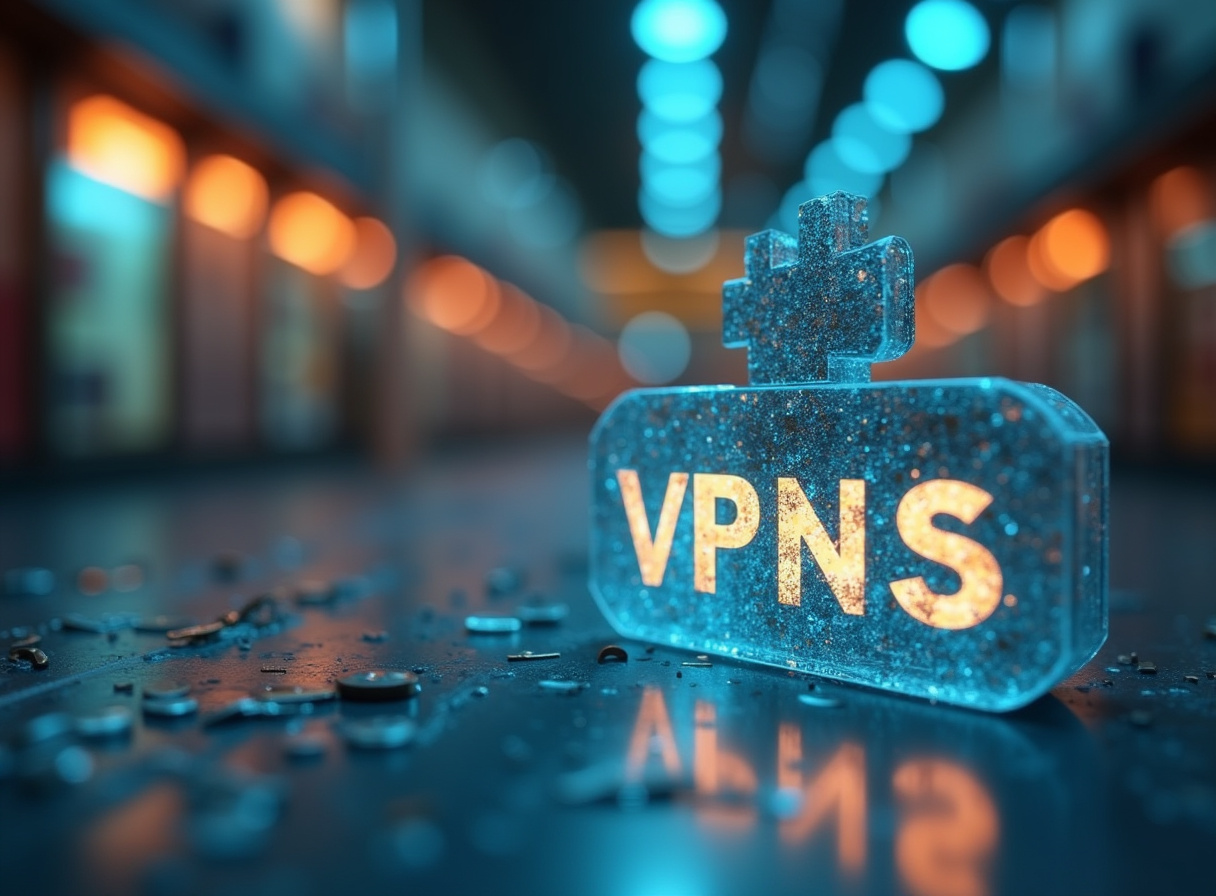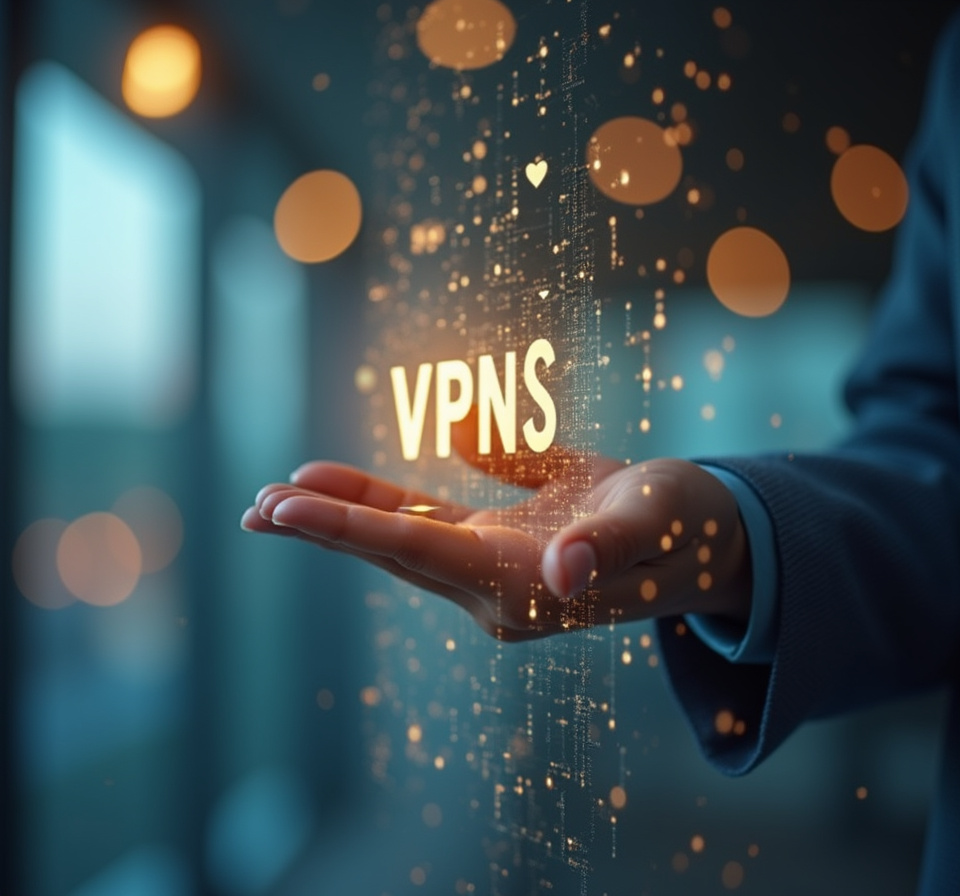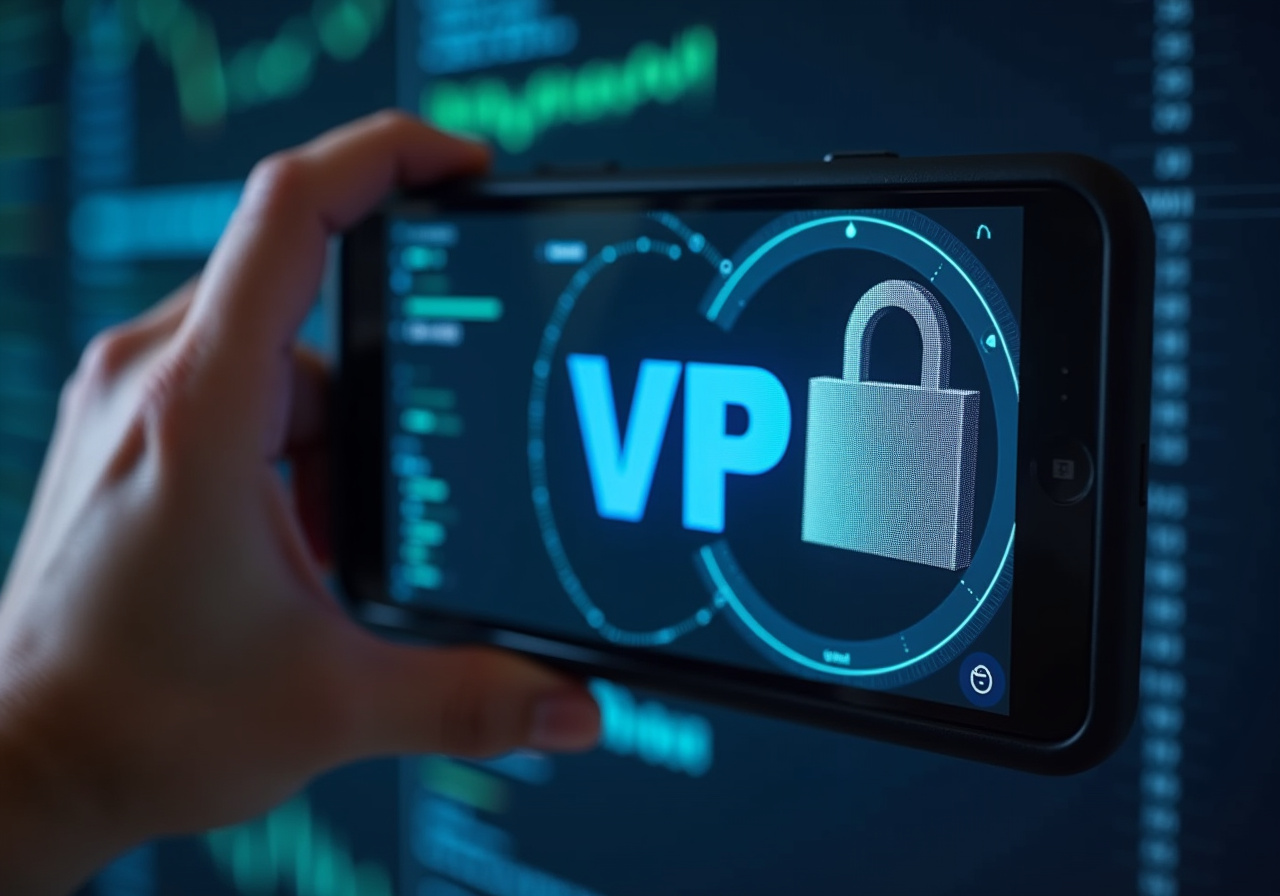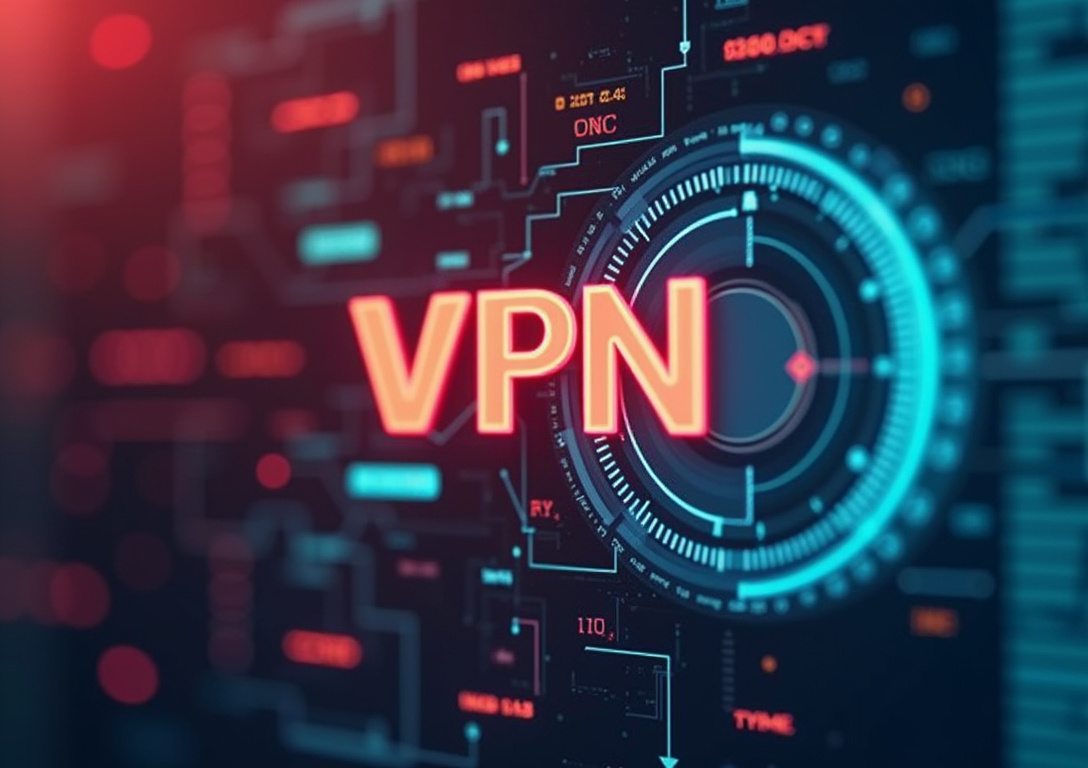VPNs for Seasonal Rentals: Securing Guest Transactions

Table of Contents
The Rising Need for Security in Seasonal Rentals
In today's interconnected world, seasonal rentals have exploded in popularity, offering travelers personalized lodging experiences and property owners enhanced revenue streams. However, underneath this facade of convenience lies a critical need for robust cybersecurity measures, especially concerning guest transaction security and the overarching protection of sensitive data. The implementation of a comprehensive VPN (Virtual Private Network) strategy has emerged as a vital component in safeguarding digital interactions within the seasonal rental ecosystem, ensuring both guest confidence and minimizing the potential for property owner liability.
This article explores the crucial role that VPNs play in securing guest transactions for seasonal rentals, placing emphasis on the core principles of data protection, upholding rental agreement privacy, and examining the broader implications of VPN technology within the real estate sector. By gaining a deep understanding of the vulnerabilities inherent in unsecured networks and implementing suitable VPN solutions, both property managers and guests can effectively mitigate potential cyber risks and enjoy a significantly safer, more secure rental experience. The ever-evolving nature of cyber threats requires proactive security measures, and VPNs offer a practical and effective layer of defense against potential breaches and privacy violations, ultimately fostering trust and long-term sustainability within the seasonal rental market.
The proliferation of online booking platforms and sophisticated digital property management systems has undoubtedly streamlined the rental process, making it easier than ever for property owners to list their properties and for guests to find suitable accommodations. However, this increased convenience has also created a larger attack surface, exposing sensitive information to potential cyberattacks that could compromise the security of both parties. From initial booking details and financial transaction data to personal identification information and the specific terms outlined in rental agreements, a significant amount of valuable and confidential data is exchanged between hosts and guests throughout the rental lifecycle.
Without the implementation of adequate and up-to-date security measures, this sensitive information is highly vulnerable to interception, theft, and various forms of misuse, potentially leading to severe financial losses, large-scale identity theft, significant reputational damage, and potential legal ramifications for all parties involved. Implementing a strong seasonal rental VPN strategy directly addresses these critical security concerns by establishing a secure, highly encrypted and impenetrable tunnel for all online activity, effectively shielding sensitive data from unauthorized access and protecting the privacy of both the host and their guests. This robust encryption mechanism effectively ensures that even in the event that data is intercepted by malicious actors, it remains completely unreadable and unusable to those unauthorized individuals, providing a crucial and foundational layer of cybersecurity protection against a wide range of cybercrime.
Furthermore, a top-tier VPN can significantly contribute to masking the user's actual IP address, making it much more difficult to track their online activity and subsequently protecting their personal privacy. In the specific context of seasonal rentals, this is especially important for guests who may be accessing the internet using unfamiliar and potentially insecure networks, such as public Wi-Fi hotspots commonly found in cafes, airports, or other public spaces. These public networks are notoriously insecure and pose a significant security risk, as they are often targeted by cybercriminals seeking to intercept unencrypted data.
The use of a VPN allows guests to protect their valuable personal information and sensitive browsing history from being easily and passively tracked by various external entities, including advertisers, data brokers, and, more concerningly, malicious actors seeking to steal personal data for nefarious purposes. For property owners and managers, utilizing a VPN can also deliver a valuable and much-needed layer of protection against potential liability issues. In the unfortunate event of a data breach occurring, demonstrating that reasonable and industry-standard security measures were proactively implemented can substantially help to mitigate potential legal and financial repercussions.
By implementing a secure and reliable VPN solution for all guest transactions and sensitive data handling, property owners can definitively demonstrate a clear commitment to data protection and upholding privacy, significantly reducing the risk of being held legally liable for damages or facing regulatory penalties. The ultimate selection and subsequent implementation of a specific VPN solution demands careful and deliberate consideration, factoring in key elements such as the anticipated number of concurrent users, the specific types of sensitive data being transmitted and stored, and the specific levels of required security. Establishing a comprehensive and multi-layered approach to cybersecurity, including the strategic implementation of VPNs, the adoption of strong and unique passwords, and the diligent application of regular software updates, is absolutely essential for protecting valuable guest transactions and vigorously maintaining the integrity of the entire seasonal rental business.
Understanding VPNs and Their Role in Data Protection
The importance of guest transaction security cannot be overstated within the highly competitive and increasingly regulated landscape of seasonal rentals. Guests consistently entrust property owners and management companies with a significant amount of personal and often highly sensitive financial information, creating a fiduciary responsibility on the part of the owner to ensure that this data is handled with the utmost care and diligence. Going beyond the immediate and easily quantifiable financial risks associated with the prevalent threat of credit card fraud or the far-reaching consequences of identity theft, a significant data breach can severely and irreparably damage a property owner’s or management company's reputation, significantly eroding guest trust and leading to a decline in bookings and revenue.
In today’s hyper-connected and reputation-driven market, online reviews, social media mentions, and overall ratings play a pivotal role in attracting new guests and driving business success. A negative experience specifically related to the perception of security vulnerabilities or an actual data breach can have a prolonged and detrimental impact on a property's long-term success and brand image, potentially leading to a significant loss of income. A robust and well-designed VPN strategy forms a fundamental component of any comprehensive and effective security framework for seasonal rentals, providing a critical and cost-effective layer of protection against a diverse range of evolving cyber threats.
By establishing a secure and encrypted channel for all online traffic, a properly configured VPN makes it significantly and measurably more difficult for cybercriminals to intercept sensitive data, including credit card numbers, login credentials, personal identification details, and sensitive communications. This robust encryption technique, utilizing advanced cryptographic algorithms, guarantees that even in the event that data is somehow intercepted by malicious actors, it remains completely unreadable and unintelligible to unauthorized individuals, effectively neutralizing the immediate threat and preventing data exploitation. Furthermore, a strategic VPN implementation can effectively protect against insidious "man-in-the-middle" (MITM) attacks, where hackers surreptitiously intercept communication between two trusted parties, commonly a guest and a booking platform or a property management system, to steal valuable sensitive information or manipulate data for malicious purposes.
By carefully routing all internet traffic through a secure and authenticated server, a VPN makes it exceedingly difficult for hackers to successfully intercept and actively manipulate data streams, greatly reducing the overall risk of MITM attacks and significantly enhancing the integrity of communications. In addition to providing robust protection against various external cyber threats, a well-configured VPN strategically positioned within the network infrastructure can also help to effectively mitigate potential internal risks. For example, if a property owner or manager uses a shared Wi-Fi network for both personal and business purposes, a VPN can effectively help to protect highly sensitive rental data from being inadvertently accessed or viewed by other potentially untrusted users sharing the same network.
This is particularly important in scenarios where the property owner or management company employs cleaning staff, maintenance personnel, or other third-party service providers who may be granted access to the Wi-Fi password for operational reasons. By implementing a VPN and rigorously enforcing strict access controls, the property owner can ensure that only authorized individuals with proper credentials have explicit access to sensitive and confidential data, substantially reducing the overall risk of accidental data leaks, internal data breaches, and privacy violations. The effective implementation of a VPN for all guest transactions should be intrinsically integrated into a broader and more holistic cybersecurity strategy, including the mandatory use of strong and unique passwords, the diligent application of regular software security updates, and the implementation of comprehensive employee training programs focused on security best practices and threat awareness.
By taking a proactive and forward-thinking approach to cybersecurity, property owners and managers can convincingly demonstrate a strong commitment to protecting valuable guest data and cultivating an environment of trust and security within the seasonal rental market. This demonstrated commitment can translate into increased customer loyalty, higher booking rates, positive online reviews, and a reinforced reputation for the property, building long-term brand equity. Furthermore, making a strategic investment in cybersecurity infrastructure, including VPN technology, can substantially help to protect the property owner or management company from potential legal and financial liabilities in the event of a damaging data breach.
By demonstrating that reasonable and industry-standard security measures were proactively implemented and rigorously enforced, property owners can effectively mitigate the risk of being held legally liable for financial damages, regulatory fines, and reputational harm. Ultimately, prioritizing guest transaction security is not only a matter of adhering to ethical responsibility and fulfilling fiduciary duties but also represents a sound and forward-thinking business decision that can significantly contribute to the long-term sustainability and overall success of a seasonal rental property.
Securing Guest Communications and Reservations with VPNs
Data protection stands as a foundational pillar of responsible and ethical seasonal rental management, and the strategic utilization of VPNs plays an undeniably vital role in upholding this essential principle. The sheer and consistently growing volume of sensitive data that is regularly processed during the multifaceted rental process, spanning from initial guest inquiries and reservation confirmations to secure financial transactions and post-stay communications, necessitates the implementation of robust and adaptive security measures to proactively prevent unauthorized data access, mitigate the risk of data breaches, and safeguard against potential misuse of sensitive information. Guests, as part of the routine booking procedure, routinely share a diverse array of personal information with property owners and managers, including essential contact details (such as email addresses and phone numbers), scanned copies of identification documents (like passports and driver's licenses), sensitive payment information (including credit card numbers and banking details), and detailed travel plans (encompassing arrival and departure dates, flight information, and specific accommodation preferences).
All of this highly personal information, when aggregated, presents an extremely attractive target for a wide range of cybercriminals seeking to exploit vulnerabilities for financial gain or malicious purposes. Property owners and management companies, conversely, manage even more extensive and sensitive data sets, including confidential details related to property ownership (such as tax records and mortgage information), intricate financial transaction records (encompassing rental income, expenses, and profit margins), and detailed guest communication logs (including email correspondence, phone call recordings, and messaging platform interactions). The potential and far-reaching consequences of a successful data breach within this ecosystem are multifaceted and damaging, encompassing significant direct financial losses (stemming from fraudulent transactions and legal settlements), widespread identity theft (impacting both guests and property owners), severe damage to brand reputation (resulting in decreased bookings and lost revenue), potential regulatory fines (imposed by data protection authorities), and a general erosion of trust within the seasonal rental market.
A carefully chosen and properly configured VPN delivers a suite of crucial data protection benefits that directly address these significant security concerns. Firstly, a VPN actively encrypts all internet traffic that originates from or is destined for the protected device or network, effectively transforming readable data into an unreadable and indecipherable format that is completely useless to unauthorized individuals. This robust encryption process ensures that even if sensitive data is somehow intercepted by malicious actors during transmission, it cannot be easily decrypted or exploited, providing a formidable barrier against data theft and misuse.
Secondly, a VPN actively masks the user's real IP address, effectively concealing their geographic location and online identity. This feature is particularly valuable for protecting guest privacy, as it prevents websites, advertisers, and other third-party trackers from accurately identifying and profiling their online activities. By masking the IP address, a VPN makes it significantly harder for third parties to collect personal data and create targeted advertising campaigns, enhancing the overall level of online privacy for guests.
Thirdly, a VPN can effectively bypass geographic restrictions and censorship, allowing guests to access content and services that may be blocked in their current location. This is particularly useful for international travelers who may encounter censorship or content restrictions when accessing their favorite streaming services or social media platforms from abroad. A VPN enables them to circumvent these restrictions and enjoy uninterrupted access to the online content they desire.
To fully leverage the data protection capabilities of VPNs in the seasonal rental context, property owners and managers should consider the following key recommendations: 1. Implement a strict VPN policy: Clearly define the circumstances under which VPN usage is mandatory, particularly when accessing sensitive data or using public Wi-Fi networks. 2.
Choose a reputable VPN provider: Select a VPN provider with a proven track record of security and privacy, and carefully review their data logging policies. 3. Configure the VPN correctly: Ensure that the VPN is properly configured to encrypt all traffic and prevent data leaks.
4. Educate guests about VPN usage: Provide guests with clear instructions on how to use the VPN and explain the importance of protecting their personal data. 5.
Regularly monitor VPN usage: Monitor VPN logs to detect any suspicious activity or potential security breaches. By implementing these measures, property owners and managers can significantly enhance data protection within their seasonal rental operations and build a stronger foundation of trust with their guests.
Enhancing Trust and Compliance in Seasonal Rental Transactions
Upholding Rental Agreement Privacy constitutes a crucial, yet often overlooked, aspect of responsible seasonal rental management that directly contributes to guest trust, regulatory compliance, and overall business success. The rental agreement itself consistently contains a wealth of sensitive information pertaining to both the property owner/manager and the guest, encompassing essential details like names, addresses, contact information, rental rates, payment schedules, property rules, liability waivers, and specific clauses pertaining to cancellation policies and dispute resolution mechanisms. Maintaining the confidentiality and integrity of this private information is paramount, as unauthorized access or disclosure could lead to identity theft, financial fraud, legal disputes, and significant reputational damage for all stakeholders involved.
In this context, VPNs contribute significantly to protecting rental agreement privacy by securing the communication channels through which these sensitive documents are transmitted, stored, and accessed. Whether it's sending a digitally signed rental agreement via email, securely storing electronic copies on cloud-based servers, or providing guests with online access to their agreement details through a property management portal, VPNs ensure that this sensitive data remains protected from prying eyes and potential cyber threats. By encrypting all internet traffic, a VPN establishes a secure tunnel that shields rental agreement data from interception during transit.
This encryption effectively renders the data unreadable to unauthorized parties, even if they manage to eavesdrop on the communication channel, preventing them from deciphering sensitive information such as names, addresses, or payment details. Furthermore, by masking the user’s IP address, a VPN makes it more difficult to track their online activity and identify their location, adding an extra layer of privacy protection when accessing rental agreement information online. In addition to securing data in transit, VPNs can also contribute to protecting rental agreement privacy by enabling secure remote access to sensitive documents stored on internal networks or cloud-based servers.
Property managers and owners often need to access rental agreements remotely, whether it's to review details while traveling or to address guest inquiries outside of normal business hours. By using a VPN, they can establish a secure connection to their internal network or cloud storage, ensuring that their access to rental agreement data is protected from unauthorized interception. However, VPNs are not a silver bullet for rental agreement privacy.
To fully protect this sensitive information, property owners and managers should implement a comprehensive set of security measures that encompass not only VPNs but also strong passwords, access controls, data encryption, and employee training. Strong passwords are essential for protecting access to online accounts and systems that store rental agreement data. Property owners and managers should encourage the use of unique, complex passwords that are difficult to guess and should implement multi-factor authentication whenever possible to add an extra layer of security.
Access controls are critical for limiting access to rental agreement data to only those individuals who need it. Property owners and managers should implement role-based access controls that grant employees only the permissions they need to perform their job duties. Data encryption should be used to protect rental agreement data both in transit and at rest.
Property owners and managers should encrypt sensitive data stored on their computers, servers, and cloud storage accounts. They should also use secure communication channels, such as encrypted email or messaging apps, to transmit rental agreement data electronically. Employee training is essential for raising awareness of rental agreement privacy risks and ensuring that staff are equipped to handle sensitive data responsibly.
Property owners and managers should provide regular training to employees on topics such as password security, phishing awareness, data handling procedures, and privacy regulations. By implementing a holistic approach to rental agreement privacy that encompasses VPNs, strong passwords, access controls, data encryption, and employee training, property owners and managers can demonstrate their commitment to protecting guest data and build a stronger foundation of trust with their clientele.
The strategic integration of VPNs within the real estate sector extends far beyond the immediate needs of seasonal rentals, encompassing a wide range of applications that enhance security, protect sensitive data, and facilitate smoother, more secure operations for real estate professionals, property managers, and clients alike. In an industry characterized by high-value transactions, the handling of vast amounts of personal and financial information, and increasing reliance on digital communication and online platforms, the need for robust cybersecurity measures is paramount. The use of VPNs in real estate provides a critical layer of defense against a myriad of cyber threats, enabling stakeholders to conduct business with greater confidence and minimize the risks associated with data breaches, fraud, and privacy violations.
For real estate agents and brokers, VPNs offer a secure way to access sensitive client data remotely, whether they are working from home, traveling to meet with clients, or accessing public Wi-Fi networks at coffee shops or airports. By establishing a secure, encrypted connection to their office network or cloud-based storage, agents can protect client information such as financial statements, credit reports, and purchase agreements from interception by hackers or unauthorized parties. This is particularly important given the increasing prevalence of phishing attacks targeting real estate professionals, which aim to steal login credentials and gain access to sensitive client data.
Property managers also benefit significantly from the use of VPNs, as they often manage a large volume of sensitive tenant information, including lease agreements, rental applications, and payment details. VPNs enable property managers to access this data securely from anywhere, allowing them to respond promptly to tenant inquiries, process rental payments, and manage property maintenance requests without compromising the privacy of their tenants. Furthermore, VPNs can help property managers comply with data privacy regulations, such as GDPR and CCPA, which mandate the implementation of appropriate security measures to protect personal data.
Clients, too, can benefit from the use of VPNs when engaging with real estate professionals and accessing online platforms for property searches, virtual tours, and document sharing Property buyers, for instance, may use a VPN to protect their privacy when browsing real estate websites or submitting personal information for pre-approval applications. By masking their IP address and encrypting their internet traffic, they can prevent websites from tracking their online activity and collecting personal data for targeted advertising. Property sellers may also use a VPN to protect the confidentiality of their financial information when communicating with real estate agents or accessing online portals for tracking property showings and offers.
In addition to these specific use cases, VPNs can also enhance the overall security and efficiency of real estate operations by enabling secure collaboration, protecting intellectual property, and facilitating secure data backups. Secure collaboration: VPNs enable real estate professionals to collaborate securely with colleagues, clients, and third-party vendors by establishing encrypted communication channels and file sharing platforms. This is particularly important when sharing sensitive documents such as legal contracts, financial statements, and property appraisals.
Protecting intellectual property: VPNs can help real estate firms protect their intellectual property, such as marketing materials, property listings, and proprietary software, by preventing unauthorized access and copying. Secure data backups: VPNs can facilitate secure data backups by encrypting data before it is transmitted to offsite storage locations. This ensures that sensitive data remains protected even if the backup media is lost or stolen.
By adopting a comprehensive VPN strategy and integrating it into their overall cybersecurity framework, real estate professionals can protect their businesses, clients, and reputation from the ever-evolving threat landscape. This proactive approach not only enhances security but also builds trust with clients and partners, contributing to long-term success in the competitive real estate market.
Stay Updated
Get the latest VPN news, tips, and exclusive deals to your inbox.




